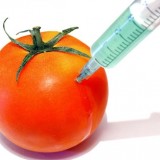The following is the third installment of a three part investigation by Nelle Maxey into the wide-ranging environmental and socio-political implications for Canada of the recently signed US-Canada cross border security deal and ancillary agreements related to the Regulatory Cooperation Commission. Read part 1 and part 2 here.
To introduce the third article in this series on the Regulatory Cooperation Commission (RCC), let’s begin with a brief reminder of the Martin-era Security and Prosperity Partnership, or SPP. The SPP met with significant public opposition on both sides of the border when it became known. Then it seemed to disappear. The Border Security deal and the RCC are simply a continuation of the SPP under new names. This is readily apparent from this statement in the RCC Joint Action Plan introductory comments:
The United States and Canada will seek, to the extent possible, to coordinate the RCC’s activities with the work of the U.S.-Mexico High-Level Regulatory Cooperation Council when the three governments identify regulatory issues of common interest in North America.
These policies have been transacted by government bureaucrats and private business leaders behind closed doors with no involvement of parliament or public debate. This excellent background video, End of Nations, from Global Research in Toronto gives a great overview of the subversion of the SPP into the current Harper Border Security and RCC policy deal. Please do not kid yourselves. This deal IS about national sovereignty and the formation of a North American Union.
Nowhere will Canadians be more personally affected by this deal than at their own dinner tables. That is the subject of this article — the agricultural trade sector and what the RCC Joint Action Plan reveals is in store for us as “misalignments” (their word) in regulatory “processes, practices and activities” are “fixed” by the swell deal.
The first section of the Agricultural initiatives concerns “Food Safety”. The justification for this portion of the deal is stated as follows:
“Food produced under the regulatory systems in both countries is some of the safest in the world, and it should usually not be necessary to apply additional inspection or testing requirements, simply because it is crossing the Canada-U.S. border.”
While many Canadians may take exception to this statement about the safety of our food supply as teenagers drop dead from energy drinks, the elderly keel over from their listeriosis-laced sandwiches, and obesity and illnesses like cancer and diabetes rage in the general population, the fact remains that the government is sold on its business-friendly policies regarding food additives and contaminates, GMO crops and foods, lax food labeling, lax inspection procedures and opposition to natural supplements and locally-produced foods. I present here the most worrisome of the specific details provided in the Joint Action Plan and its supplementary document, The Consultation Report.
Here are the specific initiatives (emphasis added):
- Develop common approaches to food safety, in light of food safety modernization efforts in both countries, to jointly enhance the safety of the Canada-U.S. food supply and minimize the need for routine food safety surveillance inspection activities in each other’s country (applies to products within the mandates of both the Canadian Food Inspection Agency and the U.S. Food and drug Administration).
- Enhance equivalence agreements for meat safety systems to streamline, simplify, and, where possible, reduce import and administrative procedures, while maintaining public health outcomes.
- Establish mutual reliance on jointly acceptable food safety laboratory recognition criteria, test results and methodologies to ensure that food safety laboratory testing conducted in one country is acceptable to regulators in both countries and facilitate cross-utilization of laboratory results by industry and regulators (applies to products within the mandates of both the Canadian Food Inspection Agency and the U.S. Food and Drug Administration).
- Streamline the certification requirements for meat and poultry, including, where possible, the reduction or elimination of redundant certification, data elements and administrative procedures for shipments flowing between Canada and the U.S
The second section concerns “Agricultural Production”, with the following initiatives listed (emphasis added):
- Further align crop protection product (e.g., pesticides) approvals and establishment of maximum pesticide residue limits/tolerances in both countries.
- Further align marketing application submission and review processes for veterinary drugs, including efforts to establish identical maximum drug residue limits/tolerances in both countries.
- develop a perimeter approach to plant protection with a view to leverage each country’s efforts to mutual advantage and, where possible, streamline certification requirements for cross-border shipments.
- Work towards a common approach to zoning of foreign animal diseases.
The third section is “Marketing” and is the only section we heard anything about in the press, namely the initiative to adopt a common approach to naming meat cuts for labelling and inventory purposes. The other initiative in this section regards adopting similar “financial risk mitigation safeguards” for nonpayment of producer bills.
The implications of the entire Agriculture section raise the following questions. Please click on the links so you understand fully what is at stake here as regulations, testing, processes and procedures (like inspections) are harmonized.
There was a hard-fought, 10-year battle to keep Bovine Growth Hormone (BGH) out of Canadian dairy products because it had not (and still has not) been proven to be safe for human consumption. The concern is risk of breast and colon cancer in humans. So, will Canadians be forced to drink milk and eat cheese containing this genetically modified veterinary drug now as happens in the US under FDA approval?
Will Canadians see higher levels of pesticide and herbicide residues than we already see on our vegetables and fruits as American standards are adopted?
Will we see a proliferation of GMO crops which are dangerous to human and animal health and are producing resistant insect and weed strains, not to mention actually killing the crops themselves?
Will more GMO foods begin hitting our dinner plates? Specifically, will Canadians see toxic but FDA-approved Gulf Coast seafood, or genetically modified and ISA-contaminated salmon, or GM pigs on our dinner plates soon?
Will levels of veterinary antibiotics increase in our meat supply so even more antibiotic resistant strains of bacteria will appear in the Canadian population?
Will we see raids on small farmers, organic co-ops and health food stores as documented in the movie Farmageddon? These raids are being carried out under the US Food Safety Modernization Act. The RCC Consultation report says:
Develop common approaches to food safety requirements and policies, aligning new regulations and guidance—specifically, implementation of the U.S. Food Safety Modernization Act requirements.
Unfortunately, the answer to all these questions seems to be “YES”, as regulations are harmonized. Think about what this may mean for our food security, the right to choose what foods we eat, the sustaining of small, local farms, and above all for our health and our children’s health. Then consider taking political action on this vital matter.
Nelle Maxey is a grandmother who lives in the beautiful Slocan Valley in south-eastern BC. She believes it is her obligation as a citizen to concern herself with the policies and politics of government at the federal, provincial and local level.


